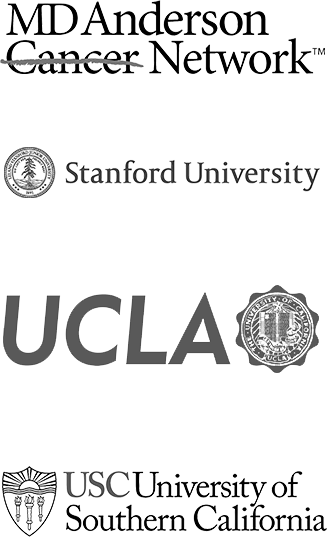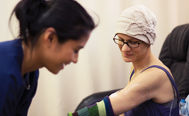Intravenous Chemotherapy
Chemotherapy is widely known as one of the most effective treatments for cancer and often included as part of a treatment regiment. Oncologists might prescribe it as a standalone treatment or before surgery to shrink a tumor. It’s also effective as a pain reliever in advanced cases.
Many of us might think intravenous chemotherapy is the only way therapeutics are administered are administered, but actually, chemotherapy can be prescribed in several different ways:
- Topical – chemotherapy cream rubbed into skin
- Oral – drug in pill, capsule, or liquid form
- Injection – a shot in a muscle or fatty part of an arm or leg
- Intra-arterial (IA) – treatment directly into an artery feeding the tumor
- Intraperitoneal (IP) – treatment administered into peritoneal cavity (contains primary organs)
A group of the most qualified specialists in chemotherapy are the doctors at the Cancer Center of Southern California. Led by Dr. Sant Chawla, an internationally renowned sarcoma oncologist, and the physicians often comment that chemotherapy is both a science and an art. They diligently apply their knowledge and experience to adjust treatment until they reach the most effective and helpful combination of therapeutic drugs for each patient, and intravenous chemotherapy is a common dosage method they use.
Intravenous Chemotherapy
The intravenous method uses either a catheter or a port as the delivery medium for the drug.
Catheters – soft, thin tube inserted in a large vein with the opposite end left end of body. The external part is connected to the IV drip. Catheters usually remain in place until treatment ends. Ports are small, round plastic or metal disc insert under a patient’s skin. A catheter connects the port to a large vein. When administering chemotherapy, a needle is connected to the port and connected with the IV drip.
Both methods require a pump attached to the IV to control the quantity and speed of the treatment. Whether a catheter or port is used depends upon the duration of treatment and your doctor.
There’s a common misconception that chemotherapy causes unpleasant side effects, but modern therapeutics are less likely to produce reactions according to the Cancer Center chemotherapy experts. However, a person’s health prior to treatment, stage of cancer, drug dose, and duration are important are important considerations when developing an intravenous chemotherapy treatment plan.
Intravenous Chemotherapy Specialists Can Help You
If you have been diagnosed with cancer and would like consultation about the most suitable treatment plan for you, the specialists at the Cancer Center of Southern California can help you. Our oncologists are internationally known for their expertise in innovative drug therapeutics for the most favorable outcome. Call today at 310-552-9999 to schedule a consultation.
Next, learn about brachytherapy treatments.


